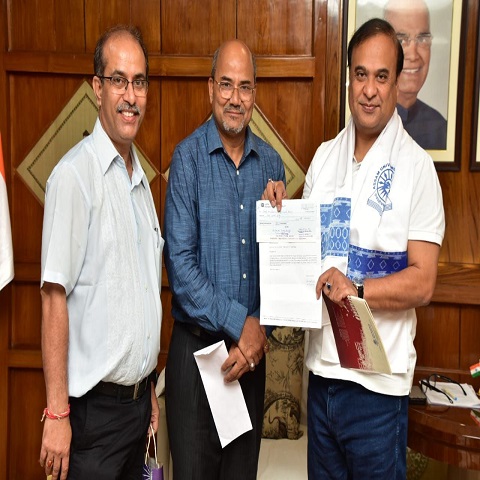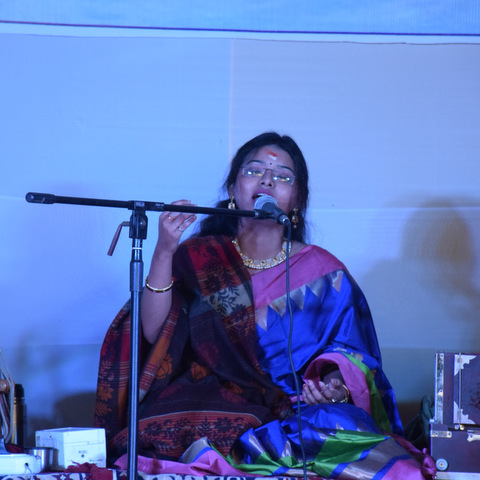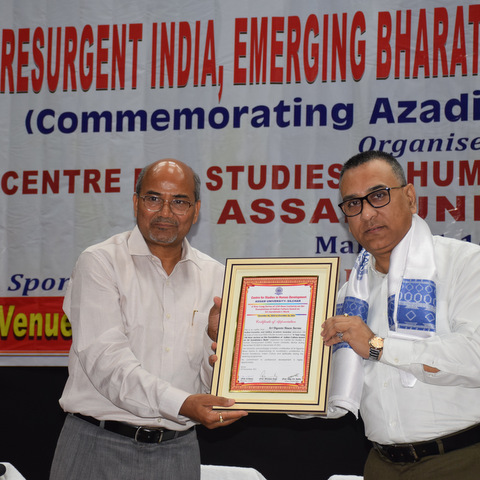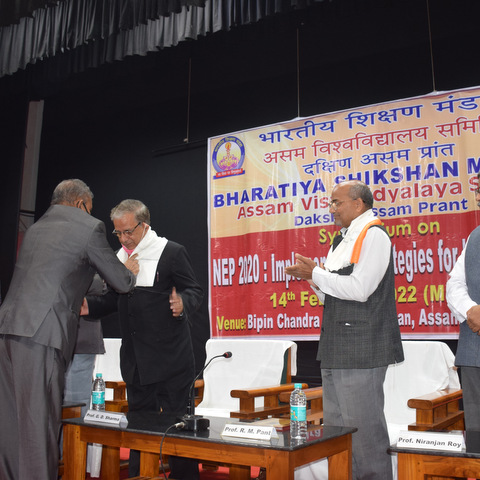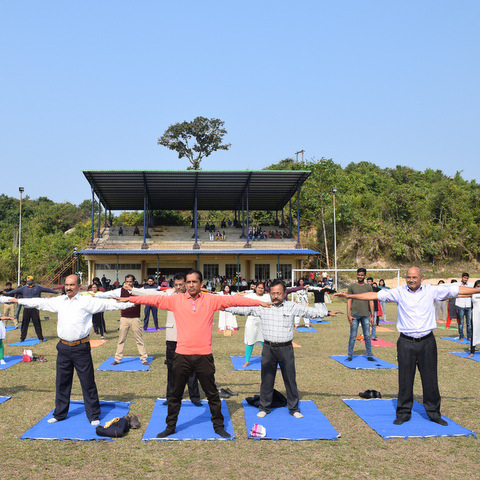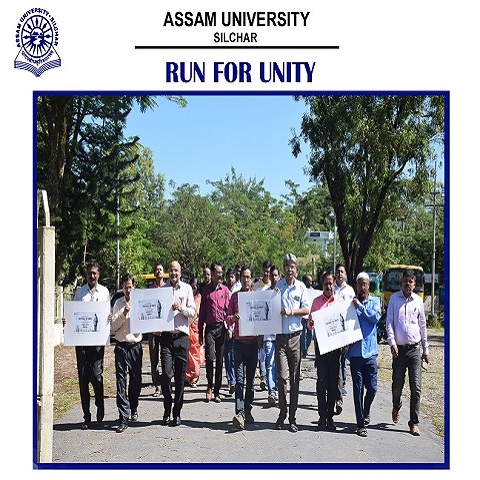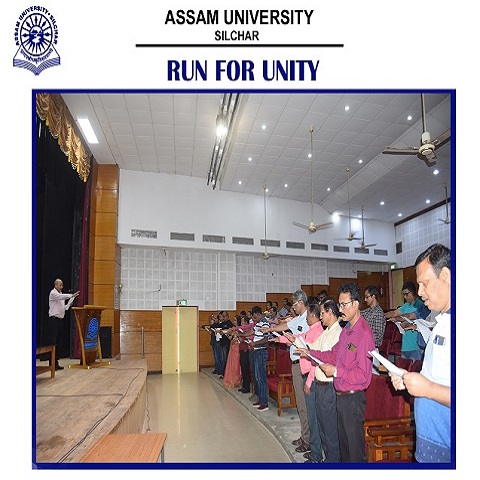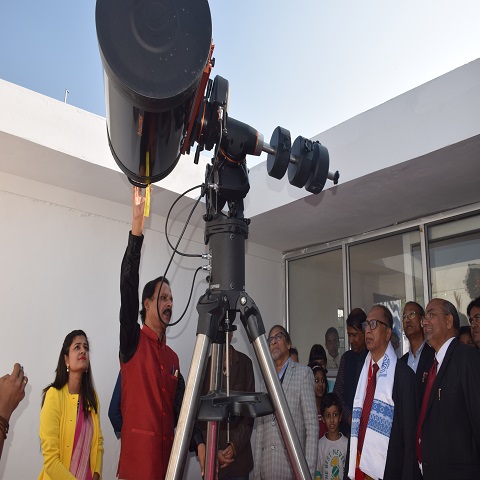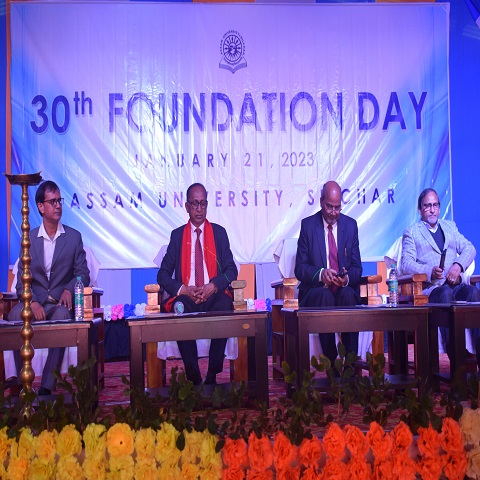
Assam University (A Central University), like other universities across the world, is actively engaged in efforts to prepare for and mitigate the impacts from COVID-19 (commonly known as coronavirus). Our top priority is to support the health and wellbeing of our students and the Assam University family as a whole. This website provides answers to frequently asked questions, as well as information about health, and other available University resources to counter the stress and other related issues during this hard time.
Dr. Prodash Kiran Nath
Registrar
Assam University, Silchar
FREQUENTLY ASKED QUESTIONS ABOUT COVID-19:
The information provided below are collected from various authentic sources and given in brief:
General Health Information about COVID-19
The World Health Organization has named the illness/syndrome caused by this novel coronavirus: COV1D-19. The virus that causes the illness has been renamed SARS-CoV-2 by the International Committee on Taxonomy of Viruses. The virus was previously known as 2019 Novel Coronavirus (2019-nCoV).
What is Coronavirus?
Coronaviruses are a large family of viruses which may cause illness in animals or humans. In humans, several coronaviruses are known to cause respiratory infections ranging from the common cold to more severe diseases such as Middle East Respiratory Syndrome (MERS) and Severe Acute Respiratory Syndrome (SARS). The most recently discovered coronavirus causes coronavirus disease COVID-19.
What is COVID-19?
COVID-1 9 is the infectious disease caused by the most recently discovered coronavirus. This new virus and disease were unknown before the outbreak began in Wuhan, China, in December 2019.
What are the symptoms of COVID-19?
The most common symptoms of COVID-19 are fever, tiredness, and dry cough. Some patients may have aches and pains, nasal congestion, runny nose, sore throat or diarrhea. These symptoms are usually mild and begin gradually. Some people become infected but don’t develop any symptoms and don’t feel unwell. Most people (about 80%) recover from the disease without needing special treatment. Around 1 out of every 6 people who gets COVID-19 becomes seriously ill and develops difficulty breathing. Older people, and those with underlying medical problems like high blood pressure, heart problems or diabetes, are more likely to develop serious illness. People with fever, cough and difficulty breathing should seek medical attention.
How does COVID-19 spread?
People can catch COVID-19 from others who have the virus. The disease can spread from person to person through small droplets from the nose or mouth which are spread when a person with COVID-19 coughs or exhales. These droplets land on objects and surfaces around the person. Other people then catch COVID-19 by touching these objects or surfaces, then touching their eyes, nose or mouth. People can also catch COVID-19 if they breathe in droplets from a person with COVID-19 who coughs out or exhales droplets. This is why it is important to stay more than 1 meter (3 feet) away from a person who is sick.
How can I protect myself from respiratory infections?
- Wash your hands often with soap and water for at least 20 seconds. If soap and water are not available, use an alcohol-based hand sanitizer.
- Avoid touching your eyes, nose or mouth with unwashed hands.
- Avoid close contact with people who are sick.
- Stay home when you are sick.
- Cover your cough or sneeze with a tissue, then throw the tissue in the trash, and disinfect your hands.
- Clean and disinfect frequently touched objects and surfaces.
Protection measures for persons who are in or have recently visited (past 14 days) areas where COVID-19 is spreading
- Follow the guidance outlined above (Protection measures for everyone)
- Self-isolate by staying at home if you begin to feel unwell, even with mild symptoms such as headache, low grade fever (37.3 C or above) and slight runny nose, until you recover. If it is essential for you to have someone bring you supplies or to go out, e.g. to buy food, then wear a mask to avoid infecting other people.
- Avoiding contact with others and visits to medical facilities will allow these facilities to operate more effectively and help protect you and others from possible COVID-19 and other viruses.
- If you develop fever, cough and difficulty breathing, seek medical advice promptly as this may be due to a respiratory infection or other serious condition. Call in advance and tell your provider of any recent travel or contact with travelers.
- Calling in advance will allow your health care provider to quickly direct you to the right health facility. This will also help to prevent possible spread of COVID-19 and other viruses.
I’ve been hearing the terms quarantine and isolation a lot. What is the difference?
While both isolation and quarantine refer to methods of preventing the spread of illness, they do not mean the same thing.
Isolation refers to separating people who are sick from those who are not sick.
Quarantine refers to separating people who are, or may have been, exposed to a pathogen, but are not showing signs of illness. Quarantine is used to make sure individuals are not contagious by minimizing contact with people who were not exposed during an illness’ incubation period—the time it takes for symptoms to emerge.
Can the virus that causes COVID-19 be transmitted through the air?
Studies to date suggest that the virus that causes COVID-19 is mainly transmitted through contact with respiratory droplets rather than through the air.
Should I worry about COVID-19?
Illness due to COVID-19 infection is generally mild, especially for children and young adults. However, it can cause serious illness: about 1 in every 5 people who catch it need hospital care. It is therefore quite normal for people to worry about how the COVID-19 outbreak will affect them and their loved ones.
We can channel our concerns into actions to protect ourselves, our loved ones and our communities. First and foremost among these actions is regular and thorough hand-washing and good respiratory hygiene. Secondly, keep informed and follow the advice of the local health authorities including any restrictions put in place on travel, movement and gatherings.
How to use, wear and dispose the masks?
- Remember, a mask should only be used by health workers, Caretakers, and individuals with respiratory symptoms, such as fever and cough.
- Before touching the mask, clean hands with an alcohol-based hand rub or soap and water
- Take the mask and inspect it for tears or holes.
- Orient which side is the top side (where the metal strip is)
- Ensure the proper side of the mask faces outwards (the coloured side).
- Place the mask to your face. Pinch the metal strip or stiff edge of the mask so it moulds to the shape of your nose.
- Pull down the mask’s bottom so it covers your mouth and your chin.
- After use, take off the mask; remove the elastic loops from behind the ears while keeping the mask away from your face and clothes, to avoid touching potentially contaminated surfaces of the mask.
- Discard the mask in a closed bin immediately after use.
- Perform hand hygiene after touching or discarding the mask — Use alcohol-based hand rub or, if visibly soiled, wash your hands with soap and water.
NOTICES/CIRCULARS
- Corrigendum on Mental Wellbeing Consultants


- Circular regarding Well-being Issues of Students during and after COVID-19 | List of Department Level Mentors to coordinate the issues of Mental Health and Well-being of respective Department (Annexure-I)

URL LINK FOR CORONA VIRUS INFORMATION:
- World Health Organization
- Ministry of Health & Family Welfare, Government of India
- National Centre for Disease Control (NCDC)
ADVISORIES AND INSTRUCTIONS FROM THE GOVERNMENT
UGC MHRD Letter -05/04/2020
UGC Guidlines
- Appeal from Prof. D.P. Singh, Chairman, University Grants Commission to combat CORONA Virus
- Precautions to be taken in the light of Novel Coronavirus (COVID-19)
- रोग प्रतिरोधक क्षमता को बेहतर करने का सामान्य उपाय
- Downloading the Aarogya Setu App
- Let COVID-19 not stop from learning – ICT initiatives of MHRD and UGC
- Precautions to be taken in light of Novel Coronavirus (COVID-19)
Ministry of Home Affair Guidelines
Govt. of Assam Circular/Office Orders
UGC Guidelines on Work from Home
CONTACT DETAILS FOR ANY EMERGENCY
INDIA
Helpline Number: +91-11-23978046
The helpline Email ID: ncov2019@gmail.com
ASSAM
Helpline Number: 6913347770 & 104
COVID HELPLINE CACHAR
https://cachar.gov.in/information-services/covid-19-helpline




